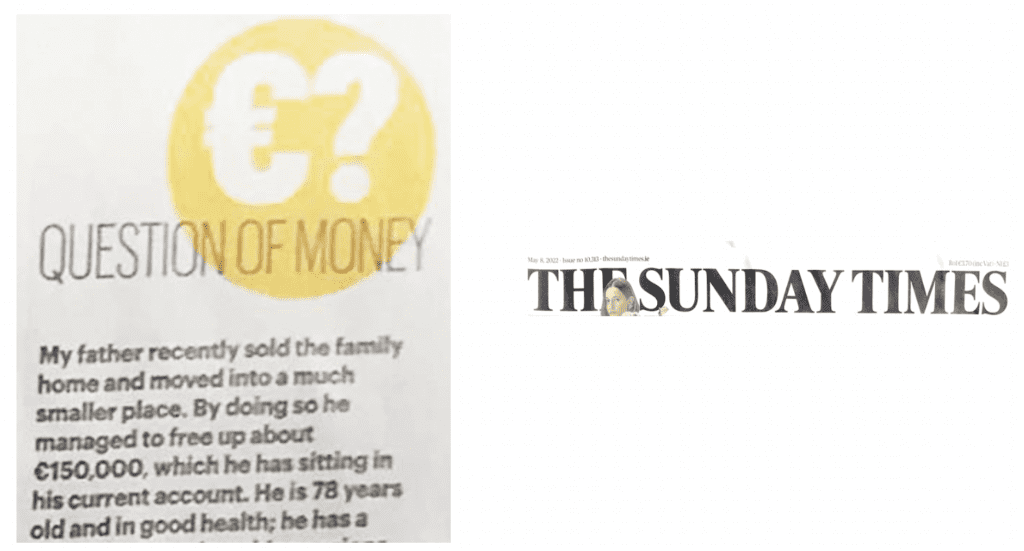My father recently sold the family home and moved into a much smaller place. By doing so, he managed to free up about €150,000, which he has sitting in his current account. He is 78 years old and in good health; he has a decent income from his pensions, good health insurance and so on.
He is wondering, where is the best place to put this money to protect it a bit from inflation? He is not interested in big returns for himself but doesn’t want it to lose value either. He doesn’t envisage needing it any time soon but obviously he may need to dip into it at some point in the future if his health declines, or he needs more care. Have you any advice?
– MD, Co Clare
Inflation is back in a big way in Ireland – and around the world. If you had €150,000 in cash a year ago, it’s worth just under €140,000 now. So your father is right that there’s a need to take action.
At the same time, markets have just recorded their worst performance in the first four months of the year since before the second world war. It’s a challenging time to invest.
We’d suggest that your father invests with three principal aims.
Firstly, he will surely want to protect the real value of his assets – that is, to stop their value being eroded by inflation.
No doubt he will also seek an element of investment return over the medium term.
Lastly, there is a need to avoid excessive exposure to any single investment at a time of heightened uncertainty.
We’d suggest focusing on three attributes: cashflow, value-oriented equities, and non-correlated assets. Let’s look at each in more detail.
Consider an infrastructure fund
In inflationary times, an investment that can return cash today (rather than the promise of it in future) is particularly valuable.
Infrastructure funds invest in assets like toll roads, water projects and wind power generation. They often generate dividend income of 4-5%, in addition to the possibility of capital growth over time. Underpinned by long-term contracts, their returns tend to be more stable – if less spectacular – than a pure equity approach.
A commercial property fund could also play a part here, with regular rental income providing strong cashflow.
Look for long-term value equity funds
Secondly, while technology companies have led falls in markets in recent weeks, there is certainly a case for holding equities for a portion of your father’s money, to drive long-term growth. Funds which own well-established companies with strong brands can navigate inflationary times better than most.
For example, Procter & Gamble – maker of Pampers nappies, Fairy liquid, and Gillette razors, has been able to raise its prices four times in the last 12 months. Investors have benefitted as a result.
We’ve not seen inflation like this for several decades. Many fund managers will be navigating it for the first time. So look for a diversified equity fund with a long-term record. Some of the funds we use have increased their dividend annually for more than fifty years.
Gold and bonds can play a part
Lastly, there is a place in your father’s portfolio for assets which are less connected to wider stock market performance.
We’d suggest he consider a holding in gold, as well as corporate bonds and index-linked government bonds, which pay a return in line with inflation.
Taken together, a portfolio of 4-5 investment funds in each of these categories can go a long way to preserving the real value of your father’s money, providing an element of ongoing income, as well as access at short notice should it be needed.
This question of the month is adapted from a Moneycube article which appeared in the Sunday Times on 8 May 2022.










